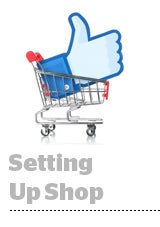
This article is part of the On Tech newsletter. You can sign up here to receive it weekdays.
* * *
In the "meh" camp: While for some it can feel like e-commerce is the only commerce, Americans still buy about 85 percent of our stuff in person. And our internet shopping over recent years has been a contributing factor to a record number of store closings every year and other retail pain — but it hasn't been the cause.
What's remarkable, though, is the profound effect from the relatively small amount of digital shopping. Online shopping has changed our behavior, reordered the nature of work and challenged the functioning of our neighborhoods and cities.
This may worth something:
4 takeaways from Walmart's Q1 earnings for brands, e-commerce marketers

Walmart U.S. reported total revenue of $134.6 billion, up 8.6% year-over-year for the first quarter in its fiscal year 2021. The financial report sheds light on the company’s shifting approach to e-commerce as well as broader consumer trends during the coronavirus pandemic.
The biggest news? After acquiring the fledgling Jet.com for $3.3 billion in 2016, Walmart announced it is shuttering the e-commerce marketplace.
“Due to continued strength of the Walmart.com brand, the company will discontinue Jet.com,” Walmart noted in its first quarter of its fiscal year 2021 earnings report on Tuesday. “The acquisition of Jet.com nearly four years ago was critical for accelerating our omni strategy.”
Steven Ridzyowski, Founder of Ecommerce Marketing Agency Is Reporting Online Shopping Trends

Even though the media buying space is peaking despite the pandemic, many industries are left behind. Steven Ridzyowski, Founder of Ecommerce Marketing Agency, shares a few key strategy points to deploy to remain relevant during an economic downturn
* * *
The pandemic and consequential restrictions imposed on business have forced most brick and mortar retail shops to evaluate their business strategies and develop or strengthen their online presence and eCommerce shops. The establishments who didn’t or cannot go online are most likely not going to make it to the next Quarter but being online is not enough. A strategy must accompany it.
Will India's 'Buy Local' Push Impact eCommerce? | PYMNTS.com

The pandemic has spurred any number of efforts across various countries to restart economies as they emerge from lockdown.
For India, in particular, the coronavirus has exposed some challenges for eCommerce giants such as Flipkart and Amazon – and now, there's a new initiative to spur consumers to "buy local."
As noted in this space back in March, soon after a nationwide lockdown became official in India, district- and state-level restrictions tied to curfews (which hindered staffers from going out and making deliveries) closed fulfillment centers. The end result was that the delivery of even essential items became logistically difficult for these major players.
While you're here, how about this:
Brick-and-Mortar is Pushed to Brick-and-Mortal. eCommerce is Not a Magic Bullet for Optical
TORONTO , May 19, 2020 /PRNewswire/ -- COVID-19 lockdown laws didn't account for traditional retail that wasn't ready for an online-only business model. For example, less than 1% of small optical and eyeglasses stores have an online store. The rest were paralyzed for three months, struggling to come up with the money to cover rent with nil revenues. Even when they are open, it will be a long time before the consumer feels comfortable to contact-shop again.
Even before the coronavirus crisis, at least 30% of all eyeglasses were sold online in North America . There is no exact number. There are only stories of dynasty optical store owners of how they used to have a line-up in their store and a ten-people retail staff. With the emergence of eCommerce, the retail team was going down to five, three, and now, it's not uncommon to just see an owner working alone, even in a large location.
The Truth About eCommerce | INSTOREMAG.COM

H AVING ECOMMERCE ACTIVATED on your website is becoming a common talking point, although many retailers still resist allowing online purchases. The COVID-19 situation has forced many to rethink their online presence, as many stores were closed and remain closed and eCommerce transactions are the only real opportunity to drive sales. Year over year, online sales continue to increase, as people become more comfortable and trusting in making purchases online.
Facebook Goes Further Into Ecommerce With New 'Shops' Feature | AdExchanger

Facebook on Tuesday launched a new commerce toolkit, called Shops, with a revamped model for how the company fits into the online shopping landscape.
Shops will give every SMB, merchant and product company the ability to set up a virtual storefront across Facebook's app properties. Unlike previous Facebook and Instagram commerce products, Shops will also be native to the platform, CEO Mark Zuckerberg said in a video announcement.
With Shops built natively into the Facebook business platform, products could be added to a cart on Instagram and purchased later on Facebook, or however across Facebook's apps.
Walmart eCommerce Sales Soar 74 Pct | PYMNTS.com

Walmart announced its first-quarter earnings this morning (May 19), crushing even the highest expectations for in-store as well as eCommerce revenue. In-store comps were up 10 percent over 2019 and eCommerce spiked 74 percent as consumers stocked up on essential and nonessential goods.
By Walmart's fiscal calendar, the quarter began Feb. 1 and ended May 1, which encompasses the beginning of the pandemic crisis and stay-at-home orders as well as the beginning of the recovery. Analysts had forecasted high numbers from the chain, but the eCommerce spike blew away even the highest expectations. Even the company's announcement that it will suspend earnings guidance for the end of the year had an eCommerce angle.

No comments:
Post a Comment